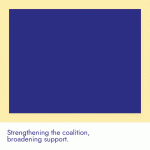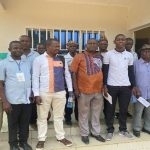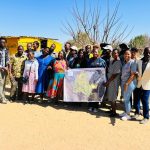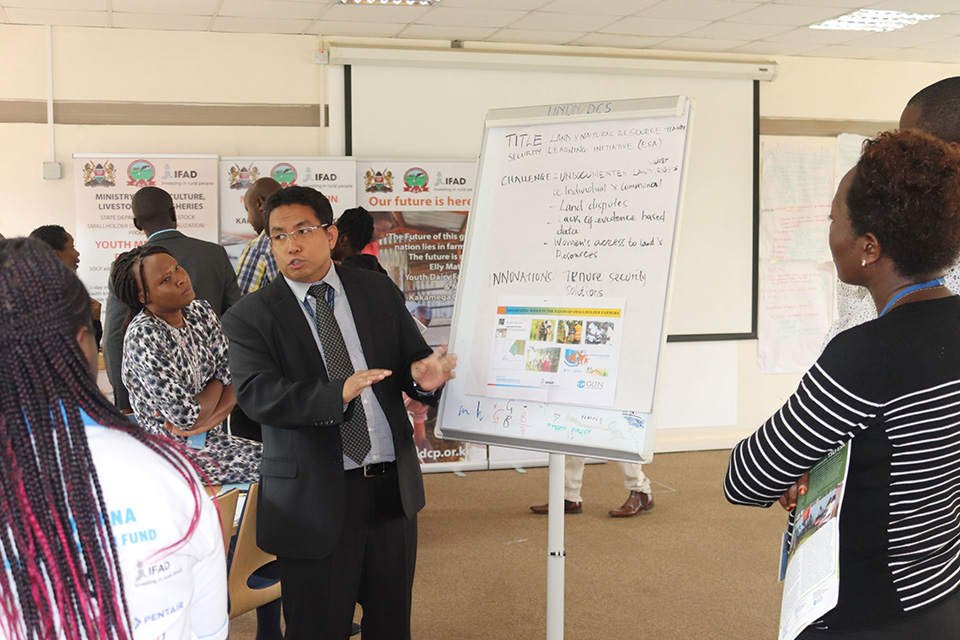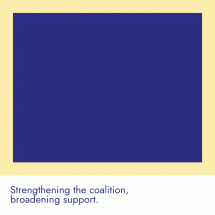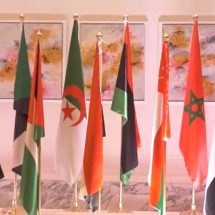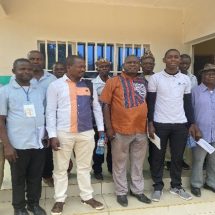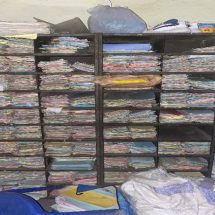GLTN recently got an opportunity to share its vast experience in implementing programmes that promoting pro-poor tools and approaches for securing land and natural resource rights. This opportunity was availed during the Eastern and Southern Africa (ESA) Region Knowledge and Learning event hosted by the International Fund for Agricultural Development (IFAD) held 14–15 October 2019 the in Nairobi Kenya. The event which brought together various institutions and organizations working on IFAD-supported projects within the ESA region unpacked the IFAD Knowledge Management Strategy which responds to the ambitions of the 2030 Agenda with focus on how it generates, mobilizes and uses knowledge to strengthen linkages and synergies between operation and knowledge. As a GLTN partner, IFAD has supported projects in the region from 2011 to 2017.
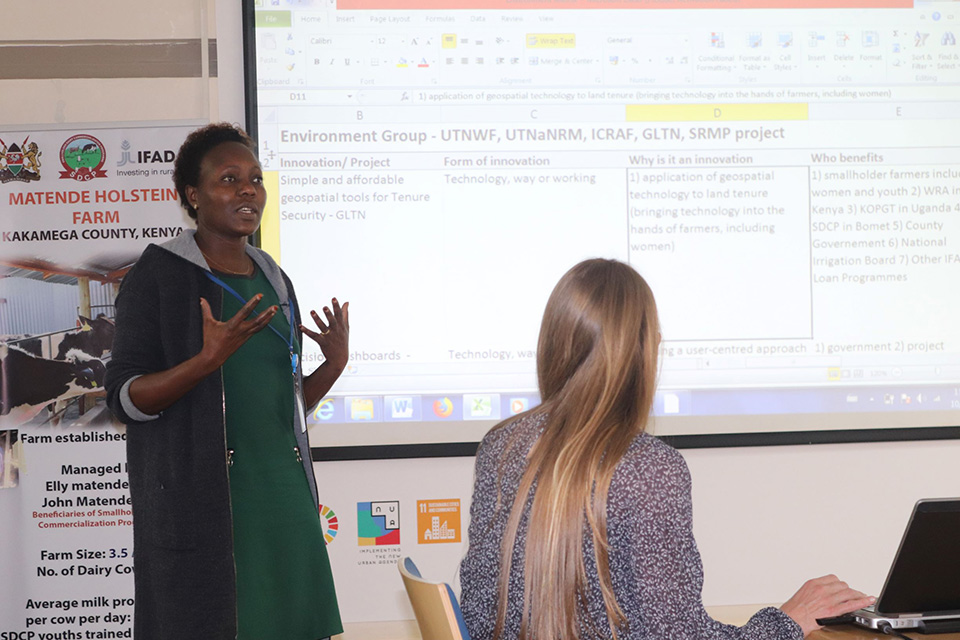
The learning event introduced a synthesis of lessons from innovations based on IFAD’s experiences over the years in various countries and explored IFAD’s new Knowledge Management Strategy which fits the requirements of the new organizational structure and business model. This new strategy leverages cutting-edge knowledge based on evidence and practice, is focused on investment in knowledge development, has a comprehensive approach to managing the knowledge base and is practical in solutions to address challenges. In order to delve further into the application of innovations in IFAD-supported projects, participants at the event were placed in clusters based on project thematic areas in which they shared the innovations that were implemented in various projects as well as lessons learnt and possibilities for scaling them up.
GLTN shared their experience on the implementation of the IFAD-supported Land and Natural Resources Learning Initiative for Eastern and Southern Africa (TSLI-ESA). This programme sought to contribute to the development and integration of pro-poor tools and approaches for securing land and natural resource rights into development programmes in selected countries in Eastern and Southern Africa. By integrating pro-poor and gender-sensitive land documentation tools, the initiative strengthened the rights of poor communities to land and natural resources and the revenue streams linked to those rights. The activities of the TSLI-ESA project were implemented through knowledge management, capacity development and pro-poor land tool implementation in focus countries. GLTN’s major innovations shared at the event included the tenure security solutions and participatory use of simple and affordable geospatial technology in documenting land and natural resource rights.
Other projects showcased at the learning event addressed the linkage between land degradation, food security and poverty reduction, communication for decision making, range land management, resilience in food systems and sustainable of natural resource management.
The meeting resolved to establish an IFAD ESA website to share knowledge on project implementation and innovations and hold a similar event annually with the diverse organizations involved in IFAD-supported projects for capacity building on knowledge management as well as for knowledge sharing. The project coordinators present were also urged to internalize and adopt innovations from other projects where possible.

